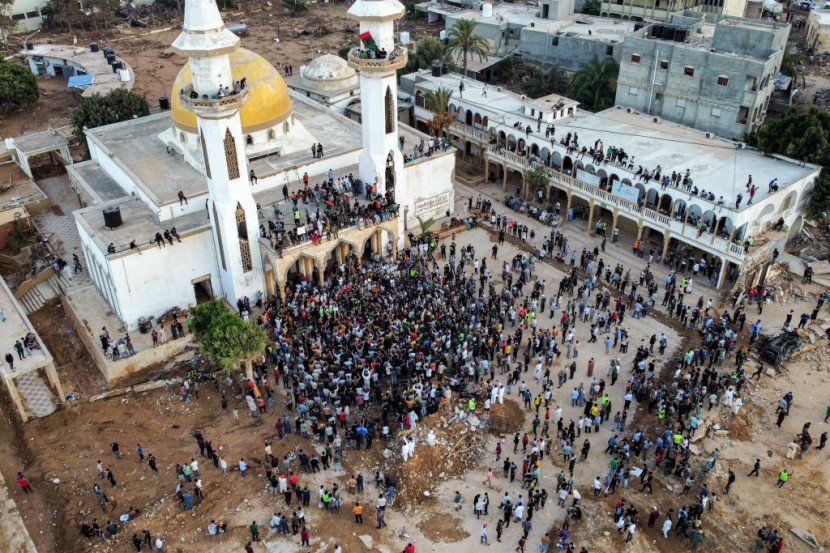In the eastern Libyan city of Derna, protests have broken out, with residents demanding the resignation of those in charge a week after heavy rain caused two dams to collapse, flooding the whole districts and killing thousands.

Opposition From the Public to the Government
According to CNN, protesters gathered outside the Sahaba Mosque to express their displeasure with government officials, notably Aguila Saleh, the speaker of the Libyan parliament in the east. In the videos posted online, they may be seen chanting, "Oh my homeland... We will stay here until the pain goes away," while standing on the golden dome of Derna's Sahaba Mosque.
One week after the devastating floods, as the hunt for survivors winds down, the people of Derna must face new horrors. These include the spread of fluid infections and the discovery of landmines washed ashore by the storms.
Large-scale rallies resumed on Monday, September 18, a week after the flood, as people tried to hold their leaders throughout the politically divided nation responsible for the breaching of dams, which they believed might have been averted.
Even now, countless people are presumed dead, making it impossible to know the entire scope of the calamity.
Abdulmenam al-Ghaithi, who was mayor of Derna during the flood, had his home burned down in the evening, according to his office manager, who spoke to Reuters. It was Hichem Abu Chkiouat, a minister in the eastern Libyan government, who confirmed that Gaithi had been removed from his position.
There is a possibility that the outbursts of rage may spread beyond Derna. There were calls for the people of Benghazi, Libya's second biggest city, to join the demonstrations outside the Sahaba Mosque.
The political crisis in Libya has been going on for over a decade, with two different governments vying for control of the country.
Tripoli, in northwest Libya, is home to the UN-backed Government of National Unity (GNU) led by Abdulhamid Dbeibeh. Meanwhile, in the east, the Libyan National Army (LNA), commanded by commander Khalifa Haftar, backs the parliament headed by Osama Hamad.
Haftar and his eastern administration rule over Derna, which is located around 300 kilometers (190 miles) east of Benghazi.
Deaths Might've Been Averted
While the flash flood killed thousands of people, the UN said last week that thousands of fatalities may have been prevented.
At a press conference held in Geneva on September 14, UN World Meteorological Organization (WMO) Secretary-General Petteri Taalas remarked, "If there would have been a normally operating meteorological service, they would have issued the warnings ... The emergency management of this would have been able to carry out evacuations of the people, and we would have avoided most of the human casualties,"
She added that although economic losses are unavoidable, they may have been lessened if proper services had been provided.
Talaas said the WMO has tried to have conversations with Libyan officials about improving these structures, but the country's unstable security situation has made that difficult.








